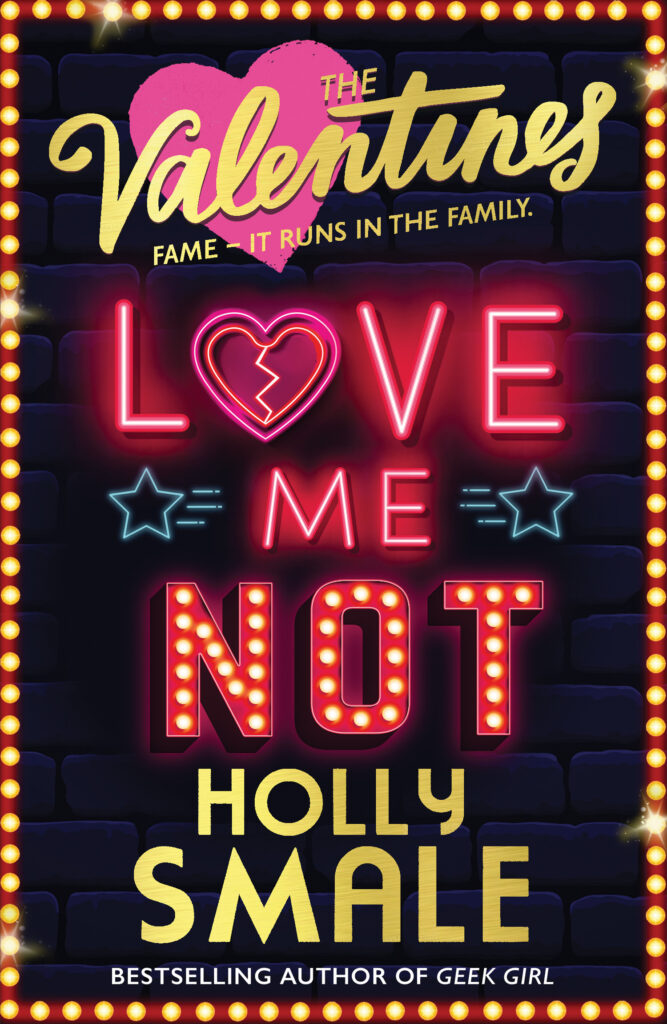Holly Smale on ‘Unlikable Female Characters’
“Likeability” remains one of the gender divides that continue to linger, in real life as well as fiction."
This post was written by Holly Smale, author of Love Me Not
We don’t like unlikeable female characters in our books. Which seems somewhat self-explanatory, until it becomes more than simply a matter of judgement: as a society, we don’t want them either. Unlikeable girls and women often make us angry, or indignant, as if the writer has failed, somehow. Check the review section of a book about an unpleasant or complicated female and you’ll see outrage and disappointment, as if somebody to root for is a fictional requisite. “I just don’t like her,” readers will complain about the murderous, vengeful Amy from Gone Girl.
Except we don’t seem to feel quite this way about unlikeable men. “Dorian Grey is a douchebag” is not a literary opinion many feel the need to make. It’s irrelevant: the novel is about more than that – in fact, his monstrosity is a joy at the very heart of it – and we allow the discussion to engage and move forward. Yet girls and women often don’t get the same freedom. Books about complex or ill-natured women are frequently judged by their protagonists, as a sort of literary popularity competition. Scarlett O’Hara from Gone With The Wind is a narcissistic monster, Carrie is a psychopath and pray you never get “Amy” in a Buzzfeed Which Little Women Character Am I quiz: never has there been a greater insult.
“Likeability” remains one of the gender divides that continue to linger, in real life as well as fiction. Women and girls will often bend themselves in half to seem “nice” or “friendly” or “approachable”. We want to make sure that we’re keeping everybody happy: that other women like us, that men like us, that we’re ticking as many boxes as possible. And that need to be liked is perhaps reflected in the books we write, and the characters we write about. It’s as if we’re scared to create fictional girls and women who might repel our readers, limit our sales, damage our reviews and lower our star ratings. Book writing is a business, after all, and we neither want those unappealing reflections nor the loss of business and income that might come with them.
The truth is, as readers we often treat books like mirrors: we look for ourselves in them. Without realising, we look for the qualities we admire or like about ourselves, and so it’s not hard to write a likeable character. As women and teen girls we’ve spent our lives, absorbing messages from society scattered through magazines, newspapers, books; buried in the words we use and the way we talk about each other. Kindness, compassion, humour, vulnerability, strength, a few cute but insignificant flaws: scatter the right qualities liberally enough, and people will see a reflection they like. Being ‘liked’, as a woman, still seems to be paramount.
View this post on Instagram
But when that reflection becomes less flattering, as readers – and as a society – we tend to instinctively shy away. When our female characters are unappealing, we feel uncomfortable and that is hard to forgive. When I started writing Mercy – the eldest sister of the Valentine family and the protagonist of Love Me Not – I knew I wanted to nudge the narrative of what it is to be a female in fiction. Mercy is a girl who doesn’t feel a need to be liked and actively pursues the opposite. She is angry, explosive, vindictive, sometimes cruel; she is arrogant and patronising, cutting and self-destructive. In writing Mercy, I wanted the reader to experience her as a real person would: to feel repelled, kept at arms’ length, attacked. I wanted them to struggle to like her and move away, just as they would in real life. I wanted the book to rest on more than a popularity contest, and for Mercy to be more than just ‘likeable’.
In reality, no woman or girl is all good or all bad. We do unkind things, we think selfish and cruel thoughts, we self-destruct and hurt others: sometimes intentionally, and sometimes with pleasure. We are multi-dimensional and glorious in our complexities. The “likeable woman” is a construct, and every time we write a flattened version of a great girl with a few awkward flaws, we skew the narrative of what it is to be female just a little further. We perpetuate the myth of our own perfection and goodness. We restrict the stories we can tell. And we tell the world to keep judging us – both real and fictional – by how ‘likeable’ we can be.
Luckily there are more and more books that explore with courage what it is to be a complicated, angry girl: Heart Shaped Bruise by Tanya Byrne, Monsters by Emerald Fennell, Genuine Fraud by E.Lockhart, Carrie by Steven King. None of them pull their punches, and they all prove that a protagonist’s value does not come from their relatability but from their ability to feel real and alive.
So let our books be full of all the moods of girls and women: from angry to insecure to anxious to needy. Let us be brave in our portrayal of what it is to be female, instead of constantly seeking to be liked. And let us have as many reflections as we can find, even if they’re not always pretty or comfortable or reassuring. Men have spent hundreds of years, writing books about horrible men.
Give women the freedom to be monsters too.
 Get your copy of Love Me Not by Holly Smale here.
Get your copy of Love Me Not by Holly Smale here.


